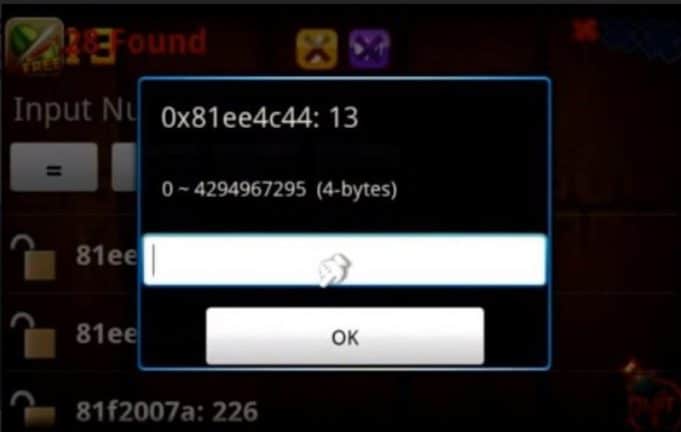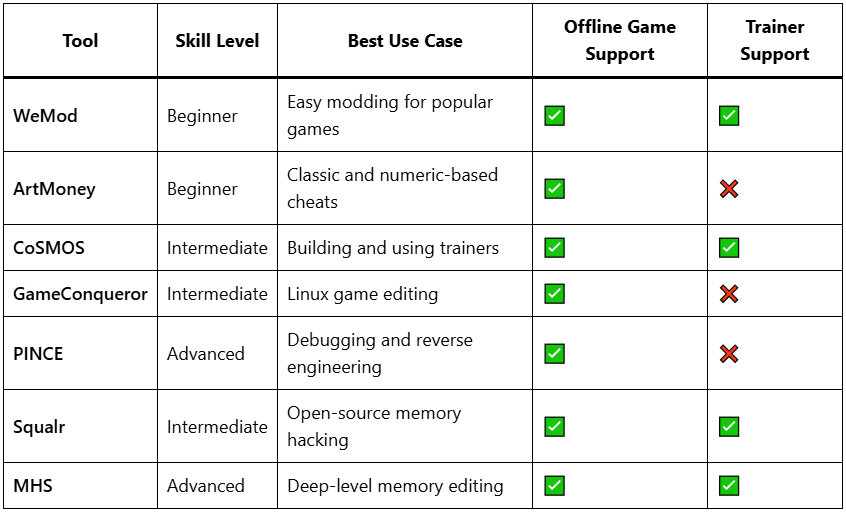Mexican Pick Up Lines


If you’ve ever used Cheat Engine, you know it’s a powerful memory scanner and editor designed to let users tweak values in PC games—think unlimited money, invincibility, or faster movement. It’s especially useful for offline or single-player games where modding the experience can make it more enjoyable or customizable.
But Cheat Engine isn’t the only tool of its kind. Whether you’re looking for a more user-friendly interface, enhanced features, or tools built for specific platforms like Linux or Mac, this 2025 guide will walk you through the best Cheat Engine alternatives—both free and paid—tailored for game hacking, memory editing, or debugging.
Note: These tools should only be used in offline or single-player games. Using memory editors in online or multiplayer environments is unethical, often against terms of service, and may result in bans.
Cheat Engine is a free and open-source memory scanner for Windows that allows users to:
Though powerful, Cheat Engine can be overwhelming for beginners and may trigger false positives in antivirus software.
Here are the top tools you can use as a Cheat Engine substitute based on features, usability, and community support.
Platform: Windows
Type: Beginner-friendly trainer platform
Price: Free (Premium version available)
Core Features:
Pros:
Cons:
Best For: Casual gamers looking to mod popular games without coding or manual memory editing.
Platform: Windows
Type: Memory scanner and editor
Price: Free / Pro version available
Core Features:
Pros:
Cons:
Best For: Fans of older offline games looking for a stable and lightweight tool.
Platform: Windows
Type: Memory scanner and trainer creator
Price: Free / Pro version for Cheat Happens members
Core Features:
Pros:
Cons:
Best For: Intermediate to advanced users who want to build and share trainers.
Platform: Linux
Type: Open-source memory editor
Price: Free
Core Features:
scanmem backend with a GUI frontendPros:
Cons:
Best For: Linux gamers and developers looking to modify single-player titles natively.
Platform: Linux (also compatible with Android via Termux)
Type: Debugger and memory editor
Price: Free (Open-source)
Core Features:
Pros:
Cons:
Best For: Power users and game hackers on Linux or Android.
Platform: Windows
Type: Memory editor and debugger
Price: Free
Core Features:
Pros:
Cons:
Best For: Developers or advanced gamers who want an open-source alternative to Cheat Engine.
Platform: Windows
Type: Advanced memory editor/debugger
Price: Free
Core Features:
Pros:
Cons:
Best For: Experienced hackers and programmers working on complex single-player games.

Memory editors and cheat tools like the ones listed above are powerful—but with great power comes great responsibility. Always use these tools ethically, especially in offline or single-player settings, and never in multiplayer games where cheating ruins the experience for others.
Whether you’re a casual player wanting infinite cookies or a developer exploring game structures, there’s a tool here for every level and platform in 2025.